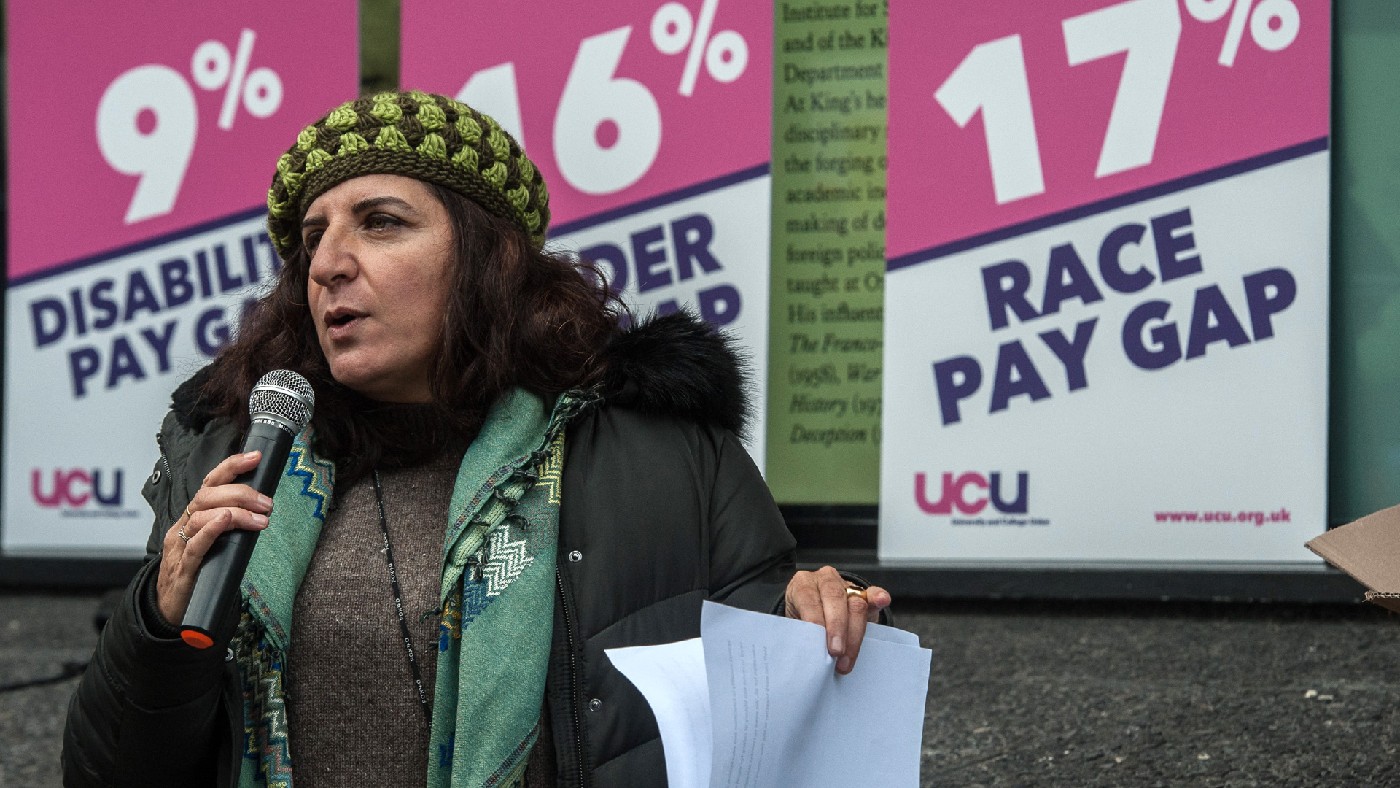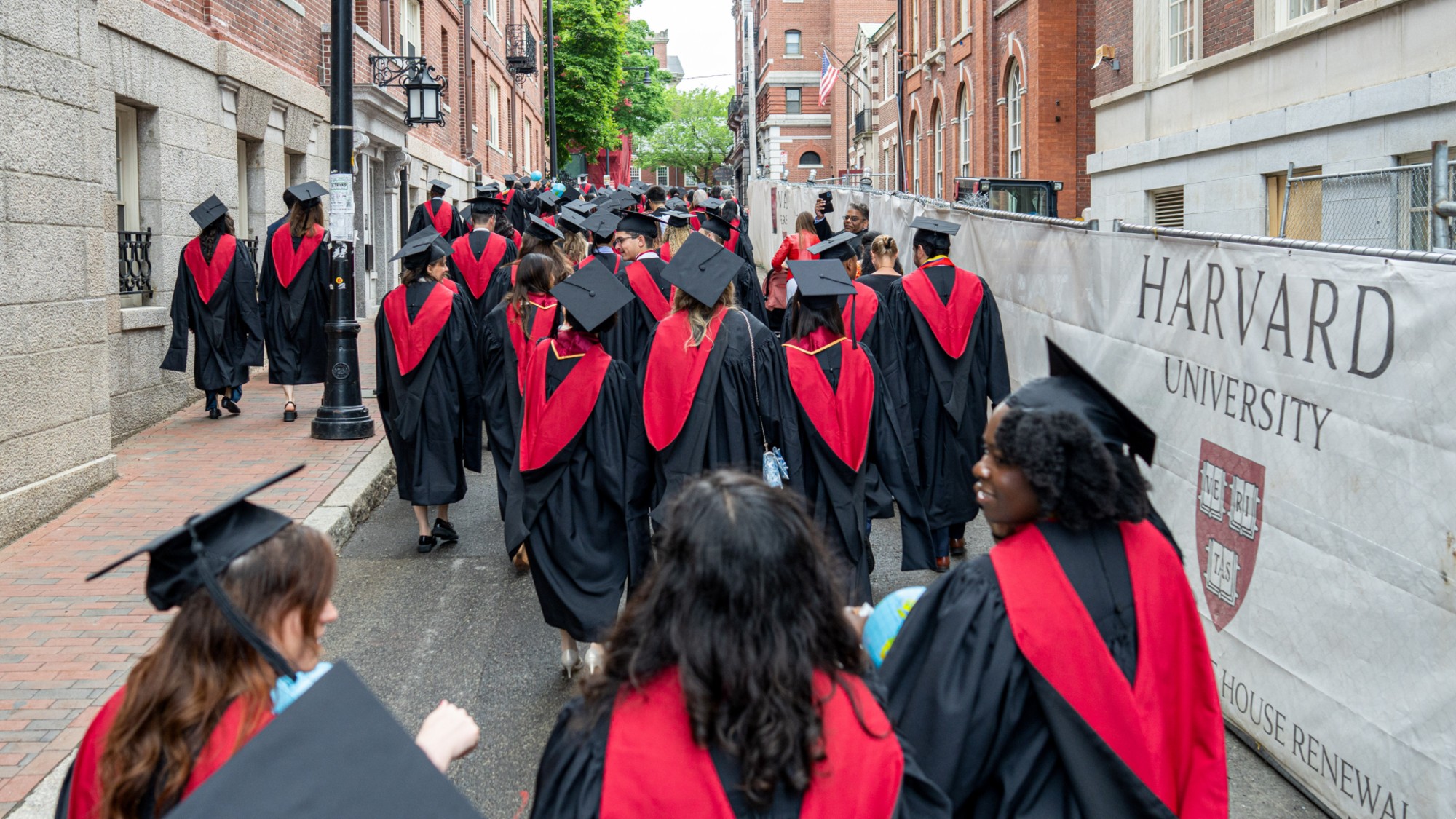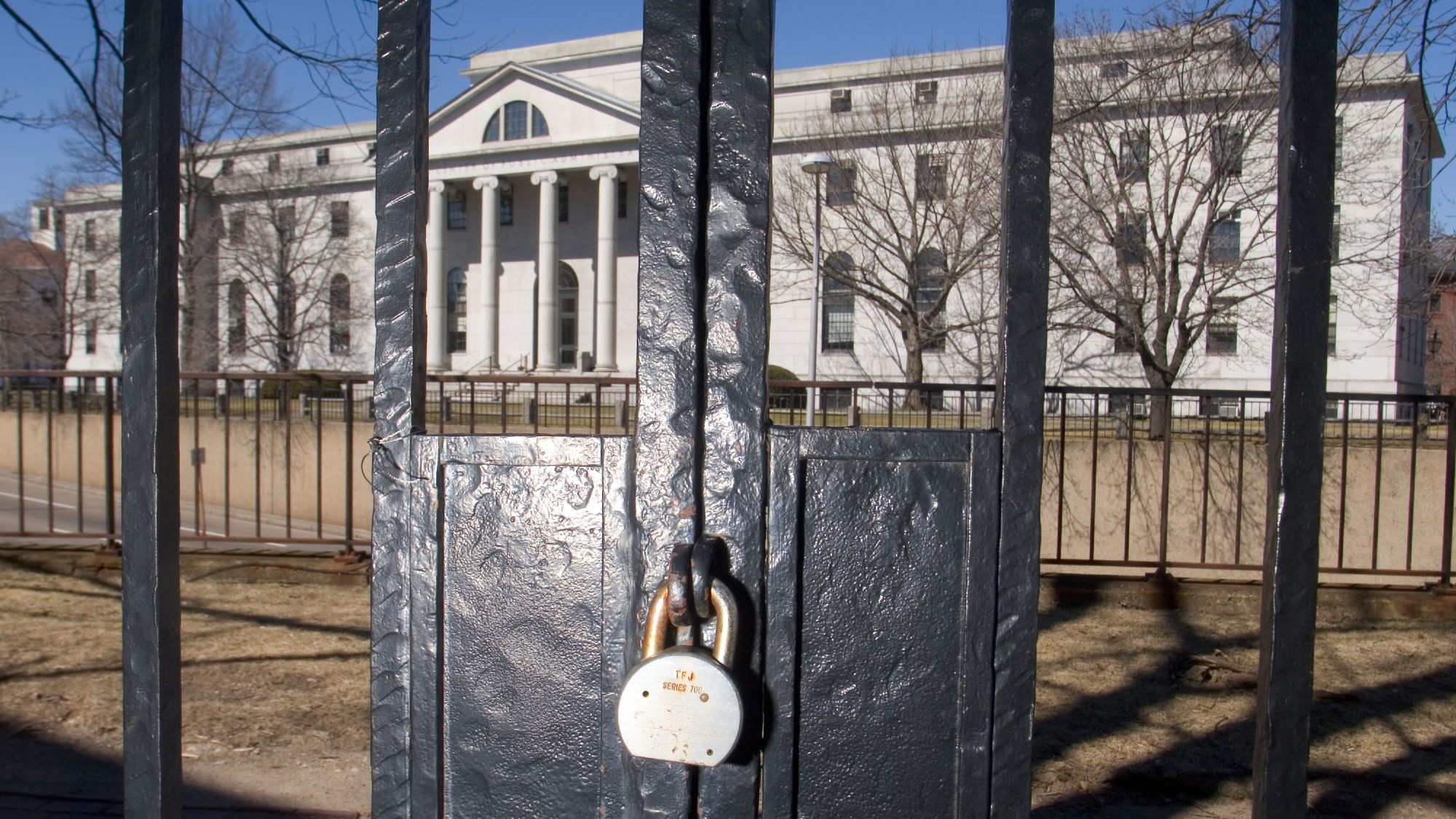Why university staff are striking across the country
Three-day walkout set to affect 1m students across England, Scotland and Northern Ireland

A free daily email with the biggest news stories of the day – and the best features from TheWeek.com
You are now subscribed
Your newsletter sign-up was successful
A three-day strike this week by thousands of staff at 58 universities is likely to affect around a million students across England, Scotland and Northern Ireland.
The industrial action, which kicked off on Wednesday, is over pensions, pay and working conditions. It was organised by the University and College Union (UCU) following the balloting of its members earlier this year.
UCU general secretary Jo Grady said the level of strike action seen this week “is just the beginning”. “University managers now need to wake up and address the very modest demands of staff,” she added.
The Week
Escape your echo chamber. Get the facts behind the news, plus analysis from multiple perspectives.

Sign up for The Week's Free Newsletters
From our morning news briefing to a weekly Good News Newsletter, get the best of The Week delivered directly to your inbox.
From our morning news briefing to a weekly Good News Newsletter, get the best of The Week delivered directly to your inbox.
If this week’s industrial action is unsuccessful, the union has threatened “more widespread and escalating industrial action in the new year”.
Proposed pension cuts
The latest dispute was partly sparked by proposed changes to the university superannuation scheme (USS), which provides pensions for staff at older universities – thought to be around 200,000 people.
The pension cuts were proposed by Universities UK (UUK), which represents more than 140 institutions, to deal with the USS’s estimated £14bn-£18bn funding shortfall. The proposals were voted through in August, much to the anger of the UCU.
A free daily email with the biggest news stories of the day – and the best features from TheWeek.com
“Employers have failed to support alternative compromise proposals put forward by UCU, drawn up under the constraints of a flawed 2020 valuation of the scheme,” said Grady in a statement.
According to the UCU, a typical member of the scheme (for example, a lecturer earning £42,000) will lose about a third (35%) of their guaranteed retirement benefits.
Employers have disputed this number, said The Times, claiming the actual cuts will be between 10-18%. “But there is no doubt contribution rates would have to rise substantially if existing benefits are to be maintained,” added the paper.
The UCU has also said that the benefits cuts would likely persuade increasing numbers of staff members to leave the scheme, which would threaten its viability. As a result, they are demanding that employers revoke their pensions cuts.
Low pay and job insecurity
As well as striking over pensions, this week’s industrial action concerns low pay and job insecurity, “highlighting the widespread use of short term and zero hour contracts in recent years”, said the Financial Times (FT).
The UCU has said that staff pay has fallen by 20% after 12 years of below-inflation pay offers, while almost 90,000 academic and academic-related staff are employed on insecure contracts.
The UCU has noted that the gender pay gap in UK universities sits at 15%, while the disability pay gap is 9% and the race pay gap is 17%. “Staff are also experiencing a crisis of work-related stress with over half showing probable signs of depression,” the union has said.
To resolve the dispute over pay and working conditions, the UCU is demanding a £2,500 pay increase for all staff, “as well as action to tackle unmanageable workloads, pay inequality and insecure contracts that blight the sector”.
UUK has described this week’s industrial action as “deeply frustrating”.
“Despite a great deal of constructive work between employers, the USS Trustee and UCU, a small minority of staff seem determined to strike in protest at economic conditions they do not like, and a regulatory regime that universities are powerless to change,” the organisation said in a statement published by The Independent.
‘Overwhelming’ levels of support
Research carried out by the National Union of Students (NUS), via their monthly student opinion tracker survey, revealed “overwhelming levels of support” for the strike action. Almost three-quarters (73%) of students said they supported striking staff, while just 9% opposed the industrial action.
Over two-thirds (69%) said they would be willing to take part in some sort of action (for example, a walkout, a demonstration or a teach-in) to campaign for funded, accessible, lifelong and democratised education, said the NUS.
Speaking to the FT, Mireia Font, an LSE master’s student in political theory, said that a few days of disrupted teaching was a “small price to pay”. She added: “After the efforts staff have made to support us during Covid it’s only fair we support them now.”
Concerns over further disruption
After almost two years of Covid restrictions, some students – who pay £9,250 a year in tuition fees – have expressed concern about the further disruption to their education.
“[Many students] just don’t think it’s fair that after having a year of strikes followed by a year-and-a-half of online learning… things are just about starting to get back into the swing and then we’re facing the possibility of months of strikes again,” Tom Horn, a 19-year-old history student in Leeds, told the BBC.
But, writing for the i news site, freelance journalist Kimi Chaddah said that although it might not feel like it to everyone, the university strikes are in the students’ best interests: “Attempts at undermining solidarity that should exist between students and staff are unhelpful at best and ignore overlapping issues.”
Kate Samuelson is The Week's former newsletter editor. She was also a regular guest on award-winning podcast The Week Unwrapped. Kate's career as a journalist began on the MailOnline graduate training scheme, which involved stints as a reporter at the South West News Service's office in Cambridge and the Liverpool Echo. She moved from MailOnline to Time magazine's satellite office in London, where she covered current affairs and culture for both the print mag and website. Before joining The Week, Kate worked at ActionAid UK, where she led the planning and delivery of all content gathering trips, from Bangladesh to Brazil. She is passionate about women's rights and using her skills as a journalist to highlight underrepresented communities. Alongside her staff roles, Kate has written for various magazines and newspapers including Stylist, Metro.co.uk, The Guardian and the i news site. She is also the founder and editor of Cheapskate London, an award-winning weekly newsletter that curates the best free events with the aim of making the capital more accessible.
-
 What to know before filing your own taxes for the first time
What to know before filing your own taxes for the first timethe explainer Tackle this financial milestone with confidence
-
 The biggest box office flops of the 21st century
The biggest box office flops of the 21st centuryin depth Unnecessary remakes and turgid, expensive CGI-fests highlight this list of these most notorious box-office losers
-
 What are the best investments for beginners?
What are the best investments for beginners?The Explainer Stocks and ETFs and bonds, oh my
-
 American universities are losing ground to their foreign counterparts
American universities are losing ground to their foreign counterpartsThe Explainer While Harvard is still near the top, other colleges have slipped
-
 Where will international students go if not the US?
Where will international students go if not the US?Talking Points China, Canada and the UK are ready to educate the world
-
 Colleges are canceling affinity graduations amid DEI attacks but students are pressing on
Colleges are canceling affinity graduations amid DEI attacks but students are pressing onIn the Spotlight The commencement at Harvard University was in the news, but other colleges are also taking action
-
 Can Trump ban overseas students from US universities?
Can Trump ban overseas students from US universities?Today's Big Question President's decision to revoke Harvard's access to database for admitting international students 'drastically escalates' the dispute
-
 America's academic brain drain has begun
America's academic brain drain has begunIN THE SPOTLIGHT As the Trump administration targets universities and teachers, educators are eying greener academic pastures elsewhere — and other nations are starting to take notice
-
 Is academic freedom in peril?
Is academic freedom in peril?Today's Big Question Faculty punishments are on the rise
-
 Anti-Israel protests impact a Jewish-rooted university
Anti-Israel protests impact a Jewish-rooted universityThe Explainer The president of Brandeis University resigned as a result of multiple factors, including his handling of recent protests
-
 Why are so many colleges closing?
Why are so many colleges closing?Today's Big Question 'Enrollment cliffs' and higher tuition both play a role